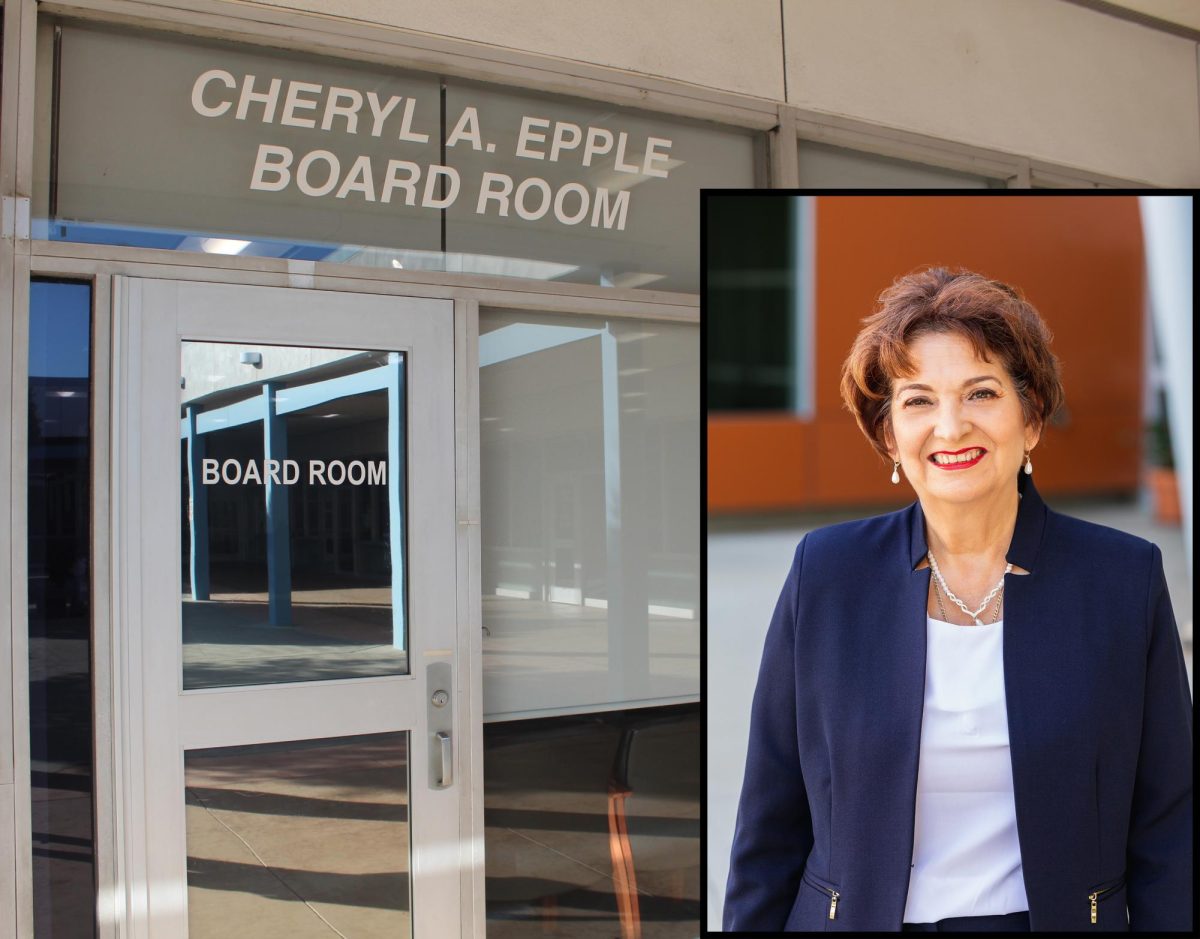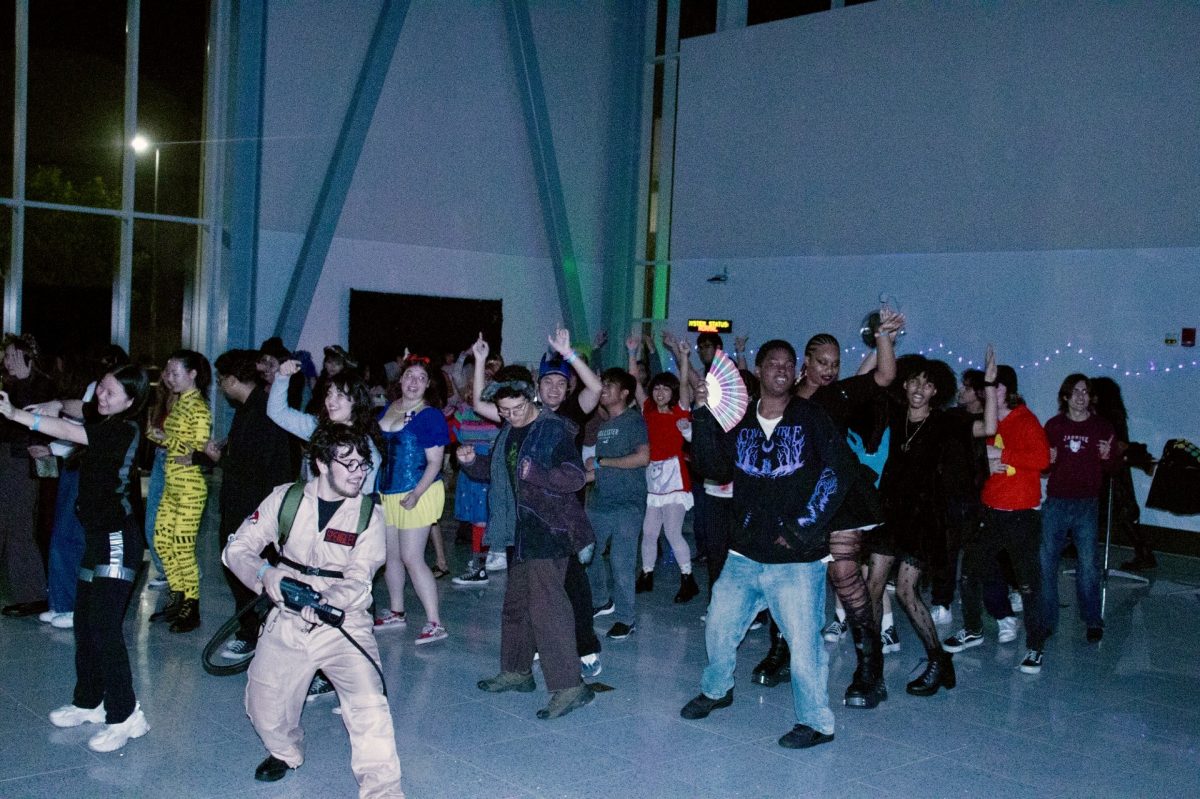Title V Project H.O.P.E. recently made accusations against Vice President of Academic Affairs Bill Farmer. The accusations were based on money.
Project H.O.P.E. claimed the promised $57,000 by Farmer, who was acting president of Cerritos College at that particular time, was yet to be paid to them.
After a two-year struggle for both Project H.O.P.E. and the Board of Trustees, an announcement was made in January 2009 that Project H.O.P.E. was in the works of permanency (institutionalization) on Cerritos College campus.
Project H.O.P.E., allows Latino students to become academic leaders, officially began Oct. 1, 2007 and continued strong for the five years it was granted to run.
The program was due to cease Sept. 30, 2007, but that was not the case.
One month after the program had officially ended, Project H.O.P.E. had numerous successful candidates that still needed funding but the funds and time was just about to run out.
That sparked Project H.O.P.E. to get together with students, alumni, faculty/staff and the community to go before the Board of Trustees in October 2007 with Public Presentations that supported H.O.P.E.’s institutionalization.
That resulted in a unanimous vote by the Board of Trustees to use reliable money sources, such as Avalon, to keep Project H.O.P.E. going for one more year.
That would take them to June 2008, when the school year ended. All the meanwhile, H.O.P.E. is accepting more candidates for their program.
What started off as a five-year agreement, ended in a bitter battle over a program (Project H.O.P.E.) that didn’t follow the time/money allotted plan.
May 2008, with only one month left ’til the program was to cease yet again, Cerritos College students and the community held a silent protest in support of H.O.P.E.’s institutionalization.
That protest led the program to receive funding until June 30, 2009 with the following day July 1, 2009, being the first official day that the program would be institutionalized. The battle was over.
There are approximately 15 board meetings per school year.
In two years, that gives an approximate of 30 meetings during the time frame of October 2007 – September 2009.
Why did Project H.O.P.E. only speak at four meetings in the two-year struggle? Why would it keep accepting students, even though there was no future program guarantee?
January 2009, Bill Farmer stepped in as acting Cerritos College president.
That enabled him to solidify Project H.O.P.E.’s situation.
Farmer stated, “Project H.O.P.E. had many recommendations about how it could be made permanent into the fabric of the college. I accepted all of them, except for one. I could not give it the entire budget it requested for its faculty.”
In doing so, Graciela Vasquez’s position was cut as the Director of Title V Project H.O.P.E. to a reassigned position as Director of Adult Education/Diversity Programs.
It took it personal that Vasquez was relocated and that’s also when the accusations against Farmer spawned, claiming he owed them money and lied about it.
But the program technically should have been over. It was a five-year plan.
Farmer’s response to the accusations were, a proof is in the book attitude. “We have paid them,” he stated. “It received its money, I don’t know why it feels that the $57,000 is still missing.”
Since 2006, Project H.O.P.E. has received more than $730,000 in assisted funds to keep the program going.
That does not include the $57,000 it received in September 2009. In total, it has received almost $800,000 in fewer than two years.
When July 2009 came, all monies paid to Project H.O.P.E. were current and the program was in the beginning stages of being institutionalized, but they were still unhappy with the final results.
It did not support the new Project H.O.P.E. model.
The original founder/director Graciela Vasquez was not there and that was upsetting.
A representative from Project H.O.P.E. said, “She should be here. She started it all. I don’t understand why she is in another department.”
There was still some discrepancies with the $57,000 as late as Oct. 19, 2009 but it has been confirmed by both parties that it has been paid.
A representative from Project H.O.P.E. stated, “The money is here and the program has been institutionalized. Let’s see what’s going to happen now.”







